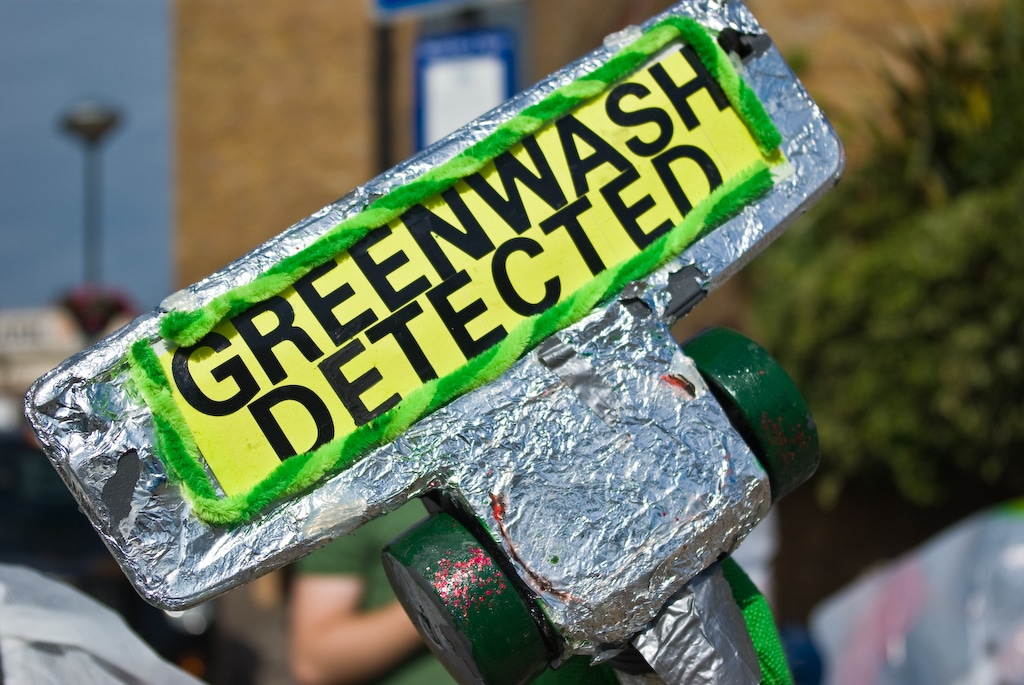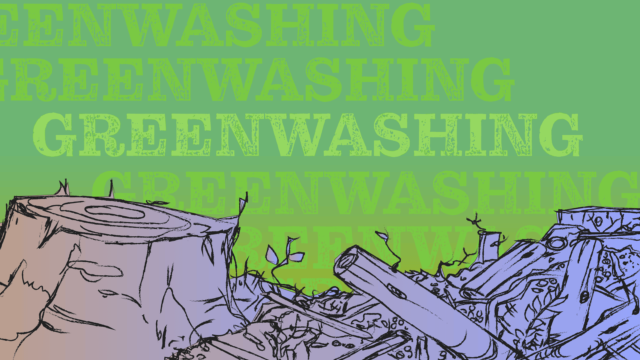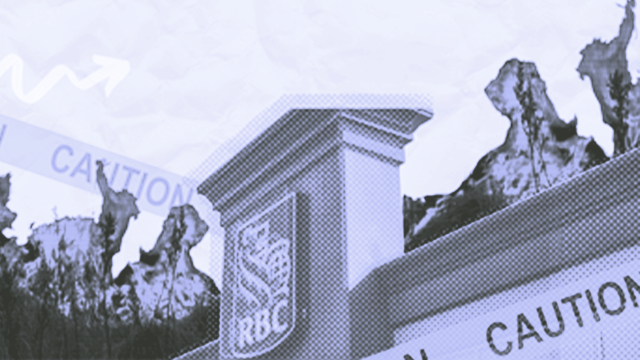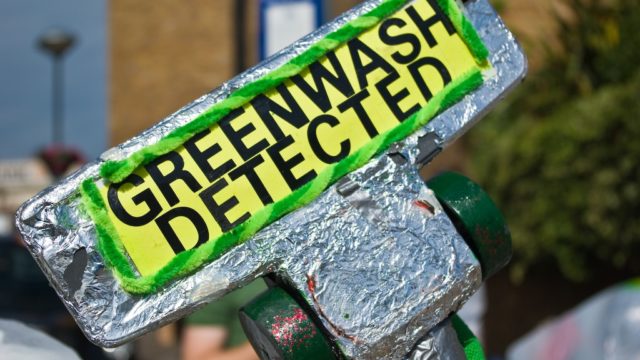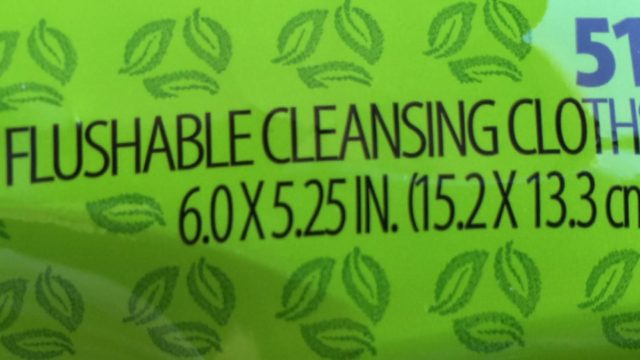What is greenwashing?
Greenwashing is misleading, untrue, or unsupported statements about a product, brand or company’s environmental or climate benefits. For example, claiming to be environmentally-friendly or a climate leader, when their actions and investments continue to threaten the environment and worsen climate change. As a result, companies may enjoy better sales or boost their reputations under the premise of sustainability without incurring the cost or responsibility of implementing sustainable practices.
Compounding the problem is the fact that environmental advertising is not specifically regulated. This leaves greenwashing to be regulated by competition, consumer protection, and securities regulators and means that misleading greenwashing is rarely prosecuted by regulators who are not specialized in analyzing environmental claims. Buzzwords like ‘ecological’, ‘environmentally-friendly’, ‘natural’, ‘green’, and ‘sustainable’ have no clear definition or widely-recognized required standard to warrant those claims.
In 2008, the Competition Bureau of Canada published guidelines for environmental claims in advertisements, requiring advertisers to avoid vague or misleading language, to include verifiable and specific information, and to provide relevant context in their claims. Those more robust guidelines were archived in November 2021 and replaced with a short webpage that contains limited guidance.
More recently, the Competition Bureau issued a warning to companies that ‘greenwashing’ their products is illegal in Canada. In 2022, in a rare circumstance of the Competition Bureau punishing greenwashing, Keurig Canada agreed to pay a $3 million fine after the Competition Bureau found that claims about the recyclability of the company’s products were false or misleading. The victory was a result of a 2019 submission to the Competition Bureau by Ecojustice and the University of Victoria Environmental Law Clinic.
Despite this, greenwashing and its deceptive marketing practices remain widespread in various industries across the country.
How Ecojustice is combatting greenwashing
Greenwashing is everywhere and fighting it can feel like an uphill battle. Strict regulations and enforcement are needed to ensure that companies cannot lie to consumers and damage the environment with impunity.
In Canada, three key pieces of federal legislation regulate advertising: the Competition Act, the Consumer Packaging and Labelling Act and the Textile Labelling Act. The Competition Bureau of Canada is responsible for administering and enforcing this legislation.
Under the Competition Act, Canadians can apply for inquiry to the Competition Bureau, calling on the Bureau to investigate a claim of greenwashing.
Ecojustice is tackling greenwashing using the power of the law. Here are three cases involving greenwashing that Ecojustice has worked on:
- Seeking probe into “flushable” wipes
- Investigating misleading ‘sustainable’ forestry certification
- Investigating Royal Bank for misleading advertising on climate action
At the federal level, Ecojustice and the Canadian Association of Physicians for the Environment have advocated for amendments to the Competition Act to strengthen prohibitions against greenwashing. Recently, some proposed amendments to the Competition Act clarified that businesses must be able to back up environmental claims with proper tests before making these claims, but further regulation is needed.
Provinces also have consumer protection legislation and securities legislation that are intended to protect consumers, shareholders and the public from being misled by companies’ statements. Depending on the province, these laws can allow people to bring complaints to regulators or even bring cases to court when a company has made false or misleading claims, including about their environmental practices. For example, Investors for Paris Compliance filed a complaint with Ontario and Quebec securities regulators alleging misleading disclosure by Canada’s big five banks regarding their sustainable finance activity in January 2024.
What can you do to make smart consumer choices?
Filing a complaint with the Competition Bureau or your provincial regulators can be useful legal tools where you have evidence of a company making misleading environmental claims but will not serve you much on your next trip to the store. So how can you get to the bottom of these greenwashing marketing traps?
The first thing to do is ask questions and look deeper into a company’s environmental claims. If you see something on a label, visit the company’s website for more information. If the information there seems broad or vague, there’s a good chance there’s some greenwashing at play. Be mindful of companies playing on the ‘lesser of two evils’ concept — though a company may claim to be ‘greener’ than its competitor, if the product itself is unsustainable, does it really make a difference? This is true for many single-use items.
If you’re still unsure, don’t be afraid to reach out to companies directly and question their claims. Transparency is important. If a company is not upfront with its practices and products, it might be because there’s no substance to their environmental claims.
Lastly, try and shop with intention. Do your part by researching the products you plan to purchase before going to the store. And if possible, the best way to ensure you are being sustainable is to buy fewer things and avoid single-use products. Invest in well-made, sustainable products that will last you for years to come.
The rise of greenwashing, paired with ineffective regulation, diminishes the power of environmentally-conscious consumers to make ethical product decisions. But with a little time and effort, consumers have an incredible amount of power to exert pressure on companies to adopt greener manufacturing processes and business operations.
Greenwashing is simply unacceptable and when a company misleads consumers you can count on Ecojustice to hold them to account!

